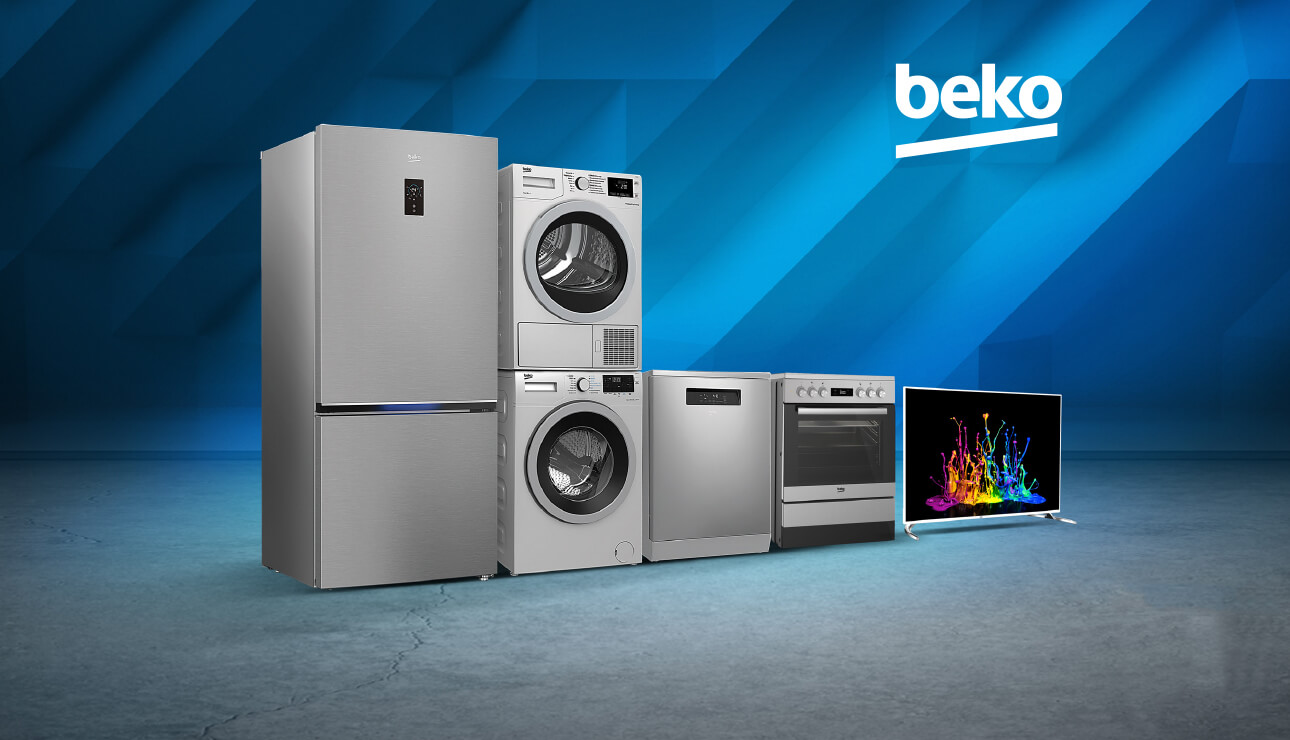Beko: Revolutionizing Home Appliances with Innovation and Sustainability Beko: Revolutionizing Home
Introduction:
Beko, a global brand renowned for its cutting-edge home appliances, stands at the forefront of innovation and sustainability in the consumer electronics industry. With a rich history spanning more than six decades, Beko has consistently delivered high-quality, reliable products that enhance the lives of millions of people around the world. In this comprehensive exploration, we delve into the origins, evolution, and impact of Beko, highlighting its commitment to innovation, sustainability, and customer satisfaction.
Origins and Early Development:
Beko traces its roots back to 1955 when it was established as a small trading company in Turkey. Over the years, the company diversified its operations, expanding into various sectors including electronics, textiles, and finance. In 1990, Beko entered the home appliances market, launching its first line of refrigerators and washing machines. This marked the beginning of Beko's journey to become one of the world's leading home appliance brands.
Throughout the 1990s and early 2000s, Beko focused on expanding its product range and market presence, introducing innovative appliances designed to meet the evolving needs of consumers. By leveraging advanced technology and engineering expertise, Beko gained a reputation for delivering reliable, energy-efficient products that offer superior performance and value.
Global Expansion and Brand Recognition:
In the early 2000s, Beko embarked on an ambitious global expansion strategy, seeking to establish a strong presence in key markets around the world. Through strategic acquisitions, partnerships, and investments, Beko expanded its reach into Europe, Asia, Africa, and beyond, solidifying its position as a leading global brand in the home appliances sector.
One of the key drivers of Beko's success has been its commitment to understanding and meeting the diverse needs of consumers in different regions. By conducting extensive market research and investing in product development, Beko has been able to tailor its product offerings to local preferences and lifestyles, ensuring relevance and appeal in each market.
In addition to its focus on product innovation and customer satisfaction, Beko has also prioritized sustainability and corporate responsibility as core pillars of its business philosophy. Recognizing the environmental impact of consumer electronics, Beko has implemented initiatives to reduce energy consumption, minimize waste, and promote eco-friendly practices throughout its operations.
Innovative Products and Technological Advancements:
Beko has earned a reputation for innovation and technological excellence, consistently introducing groundbreaking products that redefine the standards of performance and convenience in the home appliances industry. From state-of-the-art refrigerators and washing machines to cutting-edge dishwashers and ovens, Beko's product portfolio encompasses a wide range of appliances designed to streamline household chores and enhance everyday living.
One of Beko's flagship innovations is its range of smart appliances, which leverage connectivity and automation technology to offer enhanced functionality and convenience. Through integration with mobile devices and smart home systems, Beko's smart appliances allow users to remotely monitor and control their appliances, adjust settings, and receive notifications, providing greater flexibility and peace of mind.
Furthermore, Beko has been at the forefront of developing eco-friendly appliances that prioritize energy efficiency and environmental sustainability. By incorporating advanced technologies such as inverter motors, heat pump systems, and water-saving features, Beko's appliances are designed to minimize resource consumption and reduce carbon emissions, helping consumers reduce their environmental footprint while saving money on utility bills.
Community Engagement and Corporate Social Responsibility:
Beko is committed to making a positive impact on the communities it serves through various corporate social responsibility initiatives and philanthropic efforts. From supporting education and healthcare initiatives to promoting environmental conservation and social welfare programs, Beko's corporate social responsibility initiatives aim to create a brighter, more sustainable future for people around the world.
In addition to its philanthropic endeavors, Beko is also actively involved in promoting sports, culture, and the arts through sponsorships and partnerships with various organizations and events. By investing in initiatives that enrich communities and promote social cohesion, Beko seeks to foster positive change and contribute to the well-being and prosperity of society as a whole.
Challenges and Future Outlook:
While Beko has achieved significant success and recognition in the home appliances market, it also faces challenges and opportunities as it looks toward the future. One of the primary challenges is the increasingly competitive nature of the consumer electronics industry, with new entrants and established players vying for market share. To maintain its competitive edge, Beko must continue to innovate and differentiate its products through technological advancements, superior quality, and innovative design.
Additionally, Beko faces the challenge of navigating geopolitical uncertainties and economic fluctuations in key markets around the world. Global events such as trade disputes, currency fluctuations, and political instability can impact consumer confidence and purchasing behavior, posing risks to Beko's sales and profitability. To mitigate th ese risks, Beko must maintain a flexible and adaptable business model, diversify its revenue streams, and identify new growth opportunities in emerging markets.
ese risks, Beko must maintain a flexible and adaptable business model, diversify its revenue streams, and identify new growth opportunities in emerging markets.
Looking ahead, the future outlook for Beko appears promising, with opportunities for growth and expansion in both existing and new markets. As the demand for home appliances continues to rise, driven by factors such as urbanization, rising disposable incomes, and changing consumer lifestyles, Beko is well-positioned to capitalize on these trends and capture a larger share of the market.
Furthermore, the growing emphasis on sustainability and environmental consciousness presents opportunities for Beko to differentiate itself and gain a competitive advantage. By continuing to invest in eco-friendly technologies, reducing carbon emissions, and promoting sustainable practices throughout its operations, Beko can appeal to environmentally conscious consumers and position itself as a leader in corporate responsibility and sustainability.
Conclusion:
In conclusion, Beko's journey from its humble beginnings to its current status as a global leader in home appliances is a testament to its unwavering commitment to innovation, sustainability, and customer satisfaction. With a focus on delivering high-quality, reliable products that enhance the lives of consumers around the world, Beko has earned the trust and loyalty of millions of customers.
As Beko continues to evolve and adapt to changing market dynamics, its dedication to innovation, sustainability, and corporate responsibility remains steadfast. By leveraging its technological expertise, global presence, and customer-centric approach, Beko is well-positioned to navigate the challenges and opportunities that lie ahead and maintain its position as a trailblazer in the consumer electronics industry.































